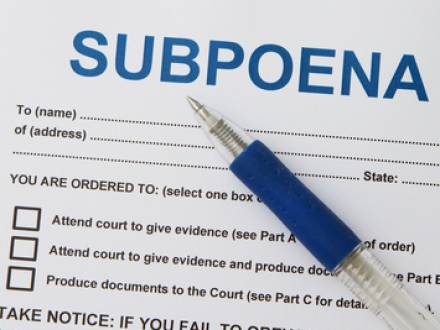Recent Blog Posts
What Happens if a Custody Order Is Violated?
 When parents separate or divorce, custody orders provide structure and stability for their children. However, when one parent ignores the court-ordered arrangement, it can lead to confusion, stress, and potential harm to the child’s well-being. Violating a custody order is not only unfair but also an offense that can carry serious legal consequences. If you are facing a custody dispute, an Illinois family law attorney can help you take the steps necessary to enforce the court order and protect your relationship with your child.
When parents separate or divorce, custody orders provide structure and stability for their children. However, when one parent ignores the court-ordered arrangement, it can lead to confusion, stress, and potential harm to the child’s well-being. Violating a custody order is not only unfair but also an offense that can carry serious legal consequences. If you are facing a custody dispute, an Illinois family law attorney can help you take the steps necessary to enforce the court order and protect your relationship with your child.
What Actions Constitute a Custody Violation?
A custody violation occurs when a parent disregards the terms of a court-ordered parenting plan. Some of the most common types of violations include:
-
Failing to return the child at the scheduled time
How Can Subpoenas Help in a High-Conflict Divorce?
 Divorce is rarely easy, but a high-conflict divorce takes challenges to a whole new level. In these emotionally charged and contentious cases, disputes over finances, custody, and assets can quickly spiral out of control. When trust is broken, and one party withholds information, reaching a fair resolution without intervention becomes nearly impossible.
Divorce is rarely easy, but a high-conflict divorce takes challenges to a whole new level. In these emotionally charged and contentious cases, disputes over finances, custody, and assets can quickly spiral out of control. When trust is broken, and one party withholds information, reaching a fair resolution without intervention becomes nearly impossible.
This is where subpoenas come into play. From uncovering hidden assets to securing key witness statements, subpoenas can help cut through the chaos and clarify complex legal battles. If you are going through a high-conflict divorce, an experienced Illinois divorce lawyer can ensure that this legal tool is effectively used to obtain the information you need for a fair outcome.
What is a Subpoena and How is it Used in Divorce?
A subpoena is a legal document that requires a person to provide specific documents or testify in court. Subpoenas are particularly useful in high-conflict divorces where one spouse may withhold financial records, communication logs, or other critical information. By using a subpoena, attorneys can ensure transparency and give the court the information it needs to make a fair decision.
How Will a Divorce Affect My Taxes?
 Divorce can impact your tax situation in ways that might surprise you. From changing your filing status to determining who claims the children as dependents, divorce can complicate tax season if you are not prepared. To avoid costly mistakes, it is very important to understand the tax implications of your divorce. A knowledgeable Illinois divorce lawyer can help you navigate these changes and explain what they may mean for your personal circumstances.
Divorce can impact your tax situation in ways that might surprise you. From changing your filing status to determining who claims the children as dependents, divorce can complicate tax season if you are not prepared. To avoid costly mistakes, it is very important to understand the tax implications of your divorce. A knowledgeable Illinois divorce lawyer can help you navigate these changes and explain what they may mean for your personal circumstances.
What Is My Filing Status After a Divorce?
Your tax filing status will depend on your marital status as of December 31 of the tax year. If your divorce is finalized on or before December 31, you must file as either "single" or "head of household". If you are legally married on December 31, you may file as "married filing jointly" or "married filing separately."
How Will Paternity Influence My Custody Rights?
 For fathers, establishing paternity is more than just signing a form; it allows them to build a connection with their children. Without paternity, fathers are limited in their ability to have custody, visitation, or a say in important decisions about the child’s upbringing. If you want to play an active role in your child’s life, it is vital to understand how paternity impacts custody and parenting plans. An Illinois family law attorney can help you take steps to protect your rights and your relationship with your child.
For fathers, establishing paternity is more than just signing a form; it allows them to build a connection with their children. Without paternity, fathers are limited in their ability to have custody, visitation, or a say in important decisions about the child’s upbringing. If you want to play an active role in your child’s life, it is vital to understand how paternity impacts custody and parenting plans. An Illinois family law attorney can help you take steps to protect your rights and your relationship with your child.
What Is Paternity, and Why Does It Matter?
Paternity is the legal recognition of a man as a child’s father. Even if he is biologically related, a father does not have any legal rights or responsibilities regarding the child if paternity is not established. This means he cannot petition the court for custody, parenting time, or any decision-making authority.
What Is the Difference Between a Divorce and an Annulment?
 The end of a marriage typically means you will have to make many difficult decisions about the future. One of the first legal decisions many people face is whether to pursue a divorce or an annulment. While both options bring a marriage to a legal close, they are key differences. The choice between the two depends on your unique situation, and understanding the differences can help you make the best decision for your circumstances. An Illinois family law attorney can help you determine which option will be in your best interest and work to protect your rights.
The end of a marriage typically means you will have to make many difficult decisions about the future. One of the first legal decisions many people face is whether to pursue a divorce or an annulment. While both options bring a marriage to a legal close, they are key differences. The choice between the two depends on your unique situation, and understanding the differences can help you make the best decision for your circumstances. An Illinois family law attorney can help you determine which option will be in your best interest and work to protect your rights.
What Is a Divorce?
Divorce is the legal dissolution of a valid marriage. In Illinois, a no-fault divorce can be granted when a couple claims that irreconcilable differences caused their relationship to break down. Irreconcilable differences are the only acceptable grounds for divorce recognized in Illinois; they can end the marital relationship, but acknowledge that the marriage was valid from the start.
What Are Grounds for Divorce in Illinois?
 Deciding to file for divorce is never easy, but understanding the legal process can make it less overwhelming. In Illinois, the law takes a straightforward approach to divorce by recognizing only one legally valid reason for it: irreconcilable differences. This concept may sound simple, but what does it mean for your case? An Illinois divorce attorney can help you understand how state courts handle divorce and can help you make informed decisions about your future.
Deciding to file for divorce is never easy, but understanding the legal process can make it less overwhelming. In Illinois, the law takes a straightforward approach to divorce by recognizing only one legally valid reason for it: irreconcilable differences. This concept may sound simple, but what does it mean for your case? An Illinois divorce attorney can help you understand how state courts handle divorce and can help you make informed decisions about your future.
What Are "Irreconcilable Differences" Under Illinois Law?
In Illinois, irreconcilable differences are the sole grounds for divorce. This term refers to a situation where a marriage has broken down, cannot be fixed, and continuing the marriage is not in the family's best interests.
How Is Debt Split in an Illinois Divorce?
 Dividing assets during a divorce is challenging, and dividing debts can be equally complicated, if not more so. From credit card balances to mortgages, knowing how these financial obligations are split in a divorce is vital to ensuring a fair financial settlement. With the guidance of an Illinois divorce attorney, you can make sense of the process, protect your interests, and create a path toward financial stability.
Dividing assets during a divorce is challenging, and dividing debts can be equally complicated, if not more so. From credit card balances to mortgages, knowing how these financial obligations are split in a divorce is vital to ensuring a fair financial settlement. With the guidance of an Illinois divorce attorney, you can make sense of the process, protect your interests, and create a path toward financial stability.
What Is Marital Debt and How Is It Defined?
In Illinois, marital debt refers to financial obligations that have been incurred by either spouse during the marriage. These debts can include:
-
Credit card balances
-
Mortgage loans
-
Car loans
Can a Divorce Affect My Credit Score?
 Divorce is a challenging life event that can have far-reaching consequences, including financial ones. While divorce itself does not directly change your credit score, the financial actions taken during and after a divorce can significantly impact your credit health. By understanding potential risks and properly planning, you can protect your credit score during this transitional period. An experienced Illinois family law attorney can guide you through the financial aspects of divorce to help minimize its impact on your financial future.
Divorce is a challenging life event that can have far-reaching consequences, including financial ones. While divorce itself does not directly change your credit score, the financial actions taken during and after a divorce can significantly impact your credit health. By understanding potential risks and properly planning, you can protect your credit score during this transitional period. An experienced Illinois family law attorney can guide you through the financial aspects of divorce to help minimize its impact on your financial future.
How Can Divorce Lead to Credit Problems?
Divorce often involves dividing marital debts and assets, which can result in financial complications. In Illinois, marital debts, just like assets, are subject to equitable distribution. This means they are divided fairly, but not necessarily equally.
How Can I Budget for College After a Divorce?
 Divorce reshapes many aspects of life, including how parents plan for their children's futures. Divorced parents may face financial challenges when college is on the horizon, especially when juggling separate households and personal financial goals.
Divorce reshapes many aspects of life, including how parents plan for their children's futures. Divorced parents may face financial challenges when college is on the horizon, especially when juggling separate households and personal financial goals.
Balancing your child's educational needs with your own stability requires careful financial planning, strategic budgeting, and a willingness to collaborate with your co-parent. Whether you are revisiting your divorce agreement or starting from the beginning, an experienced Illinois family law attorney can help you navigate college expenses without derailing your post-divorce financial plans.
What Are My Legal Obligations Under Illinois Law?
The Illinois Marriage and Dissolution of Marriage Act (IMDMA) can require divorced parents to contribute to their child’s college expenses. Courts might order parents to share costs such as tuition, room and board, books, and even medical expenses while the child attends college. These contributions are typically determined based on each parent’s financial situation, the cost of attendance, and the child’s academic performance.
Can You Contest a Venue Change Request in an Illinois Divorce?
 Divorce proceedings can be stressful and emotionally charged, especially when disputes arise over procedural matters like venue changes. A motion to change venue can significantly impact how your divorce case will proceed. It is very important to understand your rights and options when faced with a venue change request in order to protect your rights. A knowledgeable Illinois divorce attorney can help you navigate venue disputes and build a strong case.
Divorce proceedings can be stressful and emotionally charged, especially when disputes arise over procedural matters like venue changes. A motion to change venue can significantly impact how your divorce case will proceed. It is very important to understand your rights and options when faced with a venue change request in order to protect your rights. A knowledgeable Illinois divorce attorney can help you navigate venue disputes and build a strong case.
What Is a Motion to Change Venue in Divorce?
A motion to change venue is a formal request to move a divorce case to a different court or judicial district. Venue disputes often occur in contested divorces where one spouse believes another location is more convenient or beneficial for him or her.
Under Illinois law, a divorce case is generally handled in the county where either spouse resides. However, a change in venue can be requested for reasons such as:











